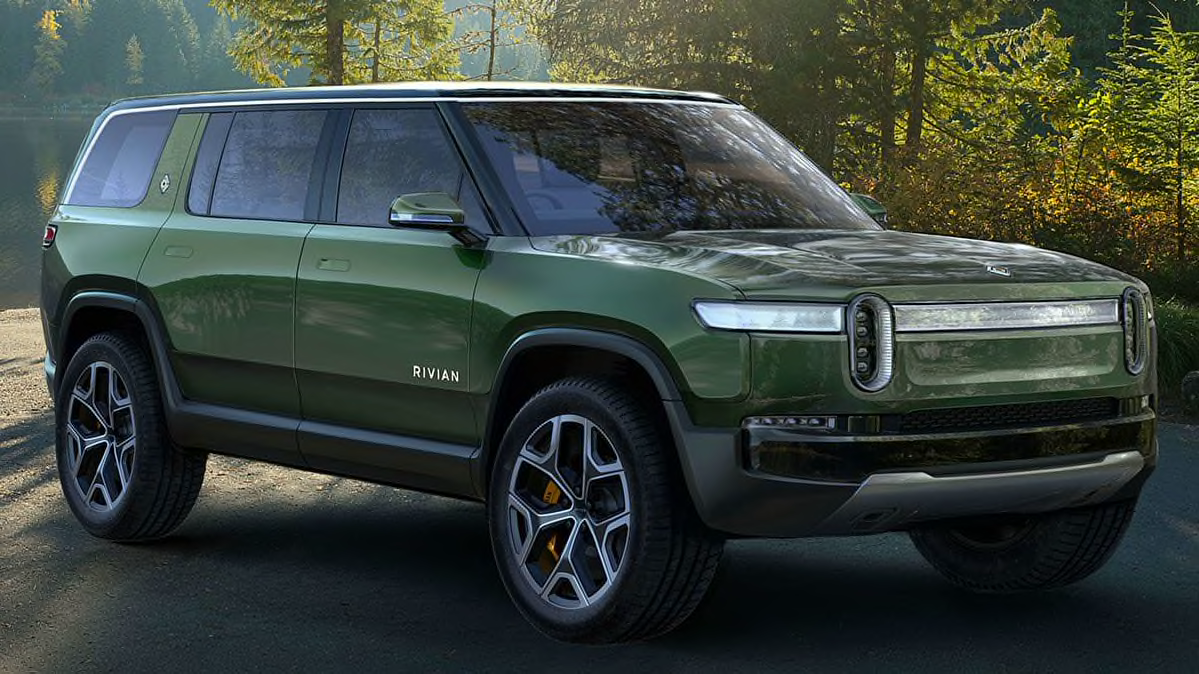So far electric
vehicle designs have been limited to sedans and sports cars. Tesla debuted Elon Musk’s semi and pick-up
truck fantasies, but has yet to bring them to the market. The field is wide open for companies like
upstart Rivian
to bring an appealing electric pick-up truck to consumers.

Rivian’s
electric pick-up truck looks more like conventional designs, but features
clever options that appeal to the consumer’s adventurous side. Luggage and tent racks keep gear squared away
and a pull out shelf for cooking grills or other cargo.
Not to be billed
as a one-trick pony, Rivian has also designed a sport utility vehicle that
offers roomy luxury for the driver and passengers. The SUV might be a little too close to
convention as the exterior is reminiscent of the Ford Scout in the early years.
Importantly, Rivian taking orders and is ready to ship
adventure!

Manufacturing,
which is expected to begin mind-2020, is a costly undertaking so beginning late
last year privately-held Rivian made a trip to the capital market. First stop in February 2019, was Amazon
(AMZN: Nasdaq) and a group of private
investors who kicked in $700 million.
The auto
industry is taking Rivian seriously. In
April 2019, Ford Motor (F: NYSE)
invested $500 million to use Rivian’s ‘skateboard platform’ for a Ford branded
sport vehicle. Ford apparently intends
to expand its electric vehicle portfolio to include a Mustang-like crossover
vehicle and a some sort of hybrid of the F-150 pickup.
Then in
September 2019, Cox Automotive made a $350 million investment in Rivian, making
a pledge to explore partnership opportunities. Cox could support Rivian in after-market
services, delivery logistics and even retailing.
Rivian has been
mum on the number of orders it has received so far. However, just before the fall automotive
shows, Rivian management set a goal of 60,000 vehicles by 2022. The company also set a retail price of
$69,000 for its vehicles. Investors can
do that math easily. Costs might be a
bit more difficult given that Rivian does not have to reveal much to the
public.
The lack of
transparency is also a problem for those investors who have finally decided to
step up to a more discerning level of due diligence vis-à-vis environmental
sustainability. Like all electric car
manufacturers Rivian can wrap itself in a cloak of green for produce a product
that reduces tailpipe emissions. However,
electric cars are not entirely green. A
typical medium sized sedan with a conventional combustion engine emits about 24
metric tons of carbon dioxide during its life cycle, while an electric vehicle
produces around 18 metric tons over its life.
As much as 46% of the total carbon footprint for an electric vehicle is
already generated by the factory and its battery producers.
Investors will
have to wait for Rivian’s next move. An
initial public offering would be a thrill for automotive industry enthusiasts. That said, Ford Motor has a foot in the door
with a sizeable equity position and a seat on Rivian’s board of directors. Ford has carefully protected itself against
encroachment by another automotive player and may find it smart to take Rivian
out of play entirely by acquiring the rest of the company. In the meantime, minority investors may find
solace in trading pre-IPO shares on an equity marketplace like EquityZen or
SharesPost.
Neither the author of the Small Cap Strategist web
log, Crystal Equity Research nor its affiliates have a beneficial interest in
the companies mentioned herein.
No comments:
Post a Comment